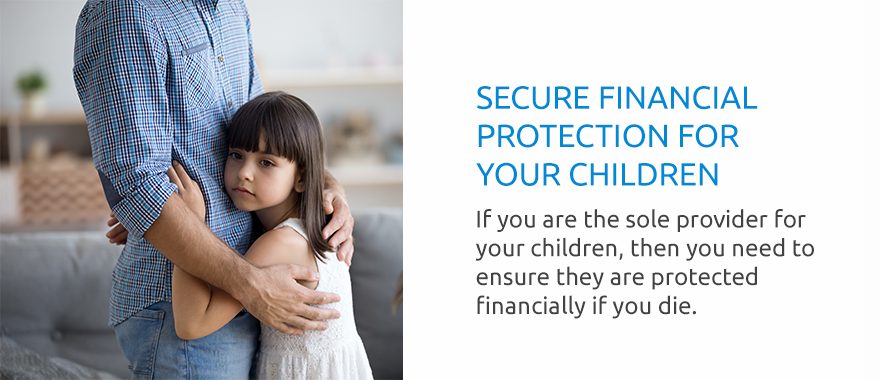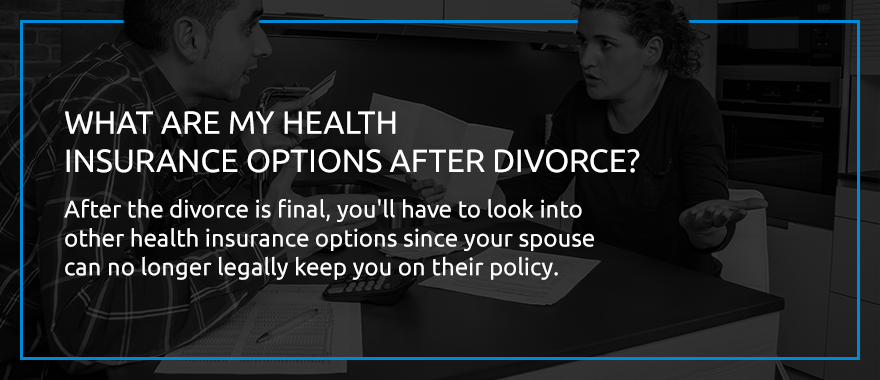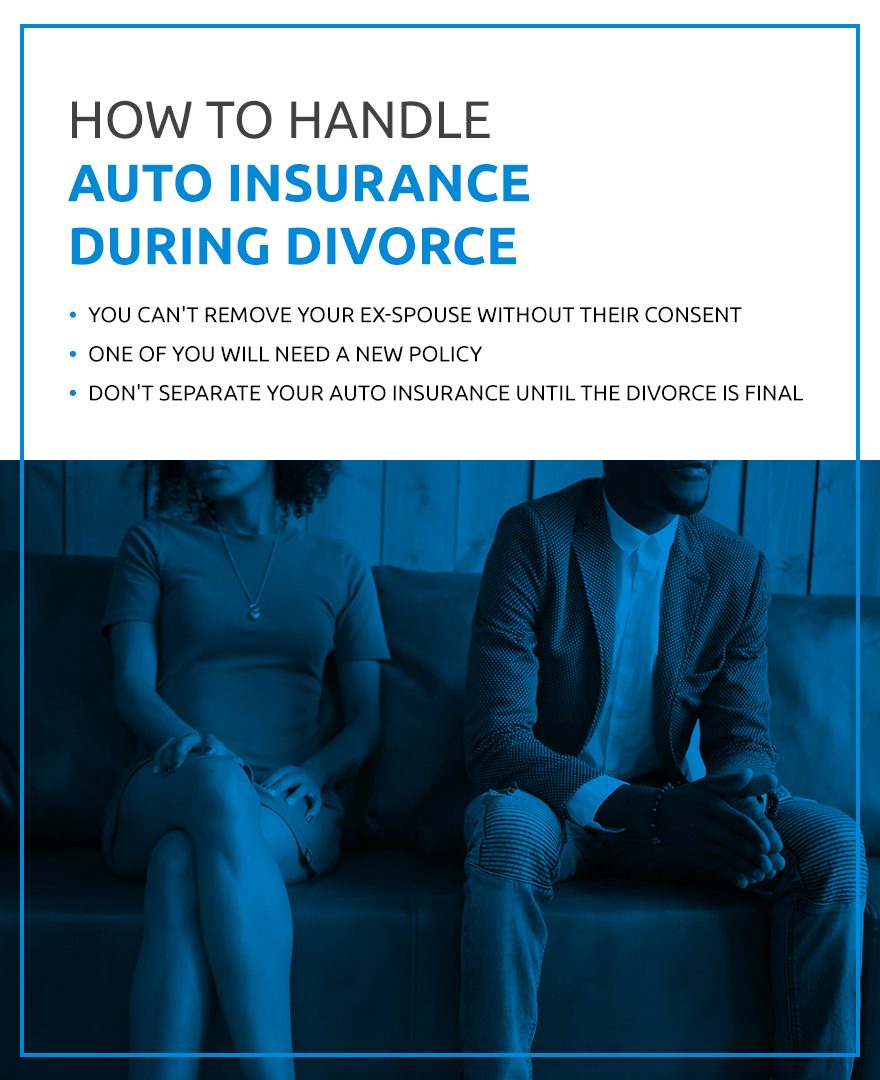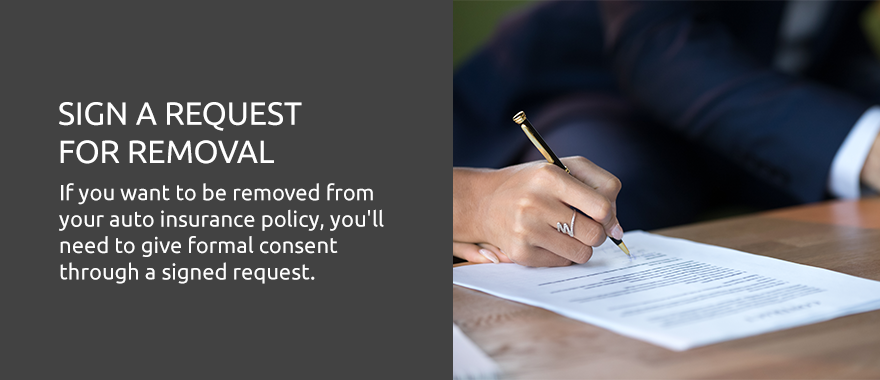Getting your affairs in order after a divorce can get a little messy and feel overwhelming. Between dividing up assets, deciding on custody and searching for a new place to live, sorting out insurance may be forgotten. But a divorcing couple needs to know about their insurance coverage during separation, whose insurance will cover the kids after the divorce and how all of your insurances –– life insurance, auto insurance, homeowners insurance or renters insurance –– will be affected during your divorce.
Figuring out life insurance during a divorce is essential, especially for divorcing couples who have children. Sorting out life insurance ensures that both individuals are protected financially and so are their children. You may need to account for a permanent policy’s cash value, make beneficiary changes, protect alimony income and child support, and secure financial protection for the children.
Certain life insurance policies accumulate cash value, particularly permanent policies. When you make your monthly premium payment, some of that money will enter a fund that allows it to earn interest. The cash value of your policy is the balance of this fund. In a process referred to as cashing out, you can forgo your death benefit to take this cash value.
When you are dividing up your marital assets, you’ll want to include your life insurance policy as well as its cash value as a part of your total net worth. Since many divorce settlements divide assets up evenly, you’ll leave the marriage with half of your policy’s cash value.

If you’re like most married couples, you’ve probably listed your spouse as your primary beneficiary on your life insurance policy. Life insurance is meant to protect your loved ones financially if you die and your household loses the income you brought in. Listing your spouse as your beneficiary allows them to continue buying food, paying the mortgage or rent and providing for your children. If you are the primary breadwinner of the household, having life insurance is even more important.
After a divorce, you probably won’t want your ex-spouse to receive that money if you die, especially if there aren’t any children involved. Luckily, for most life insurance policies, you can change beneficiaries whenever necessary. There are life insurance policies with irrevocable beneficiaries, meaning the beneficiary cannot be changed.
If you’re unsure whether you have a revocable or irrevocable beneficiary, you can reach out to your life insurance agent and change your beneficiary for a revocable policy.
If you will be taking primary custody of your children post-divorce, you’ll want to protect that alimony income and child support. The money you’ll receive from your ex-spouse, the noncustodial parent, should go toward clothing and feeding your children and saving for their college funds.
If your ex-spouse dies or doesn’t pay child support, you could potentially find yourself in a difficult financial situation. To protect yourself and your children in this case, you should keep your ex-spouse on your life insurance policy for a benefit amount that can replace the alimony income or child support until your youngest child leaves the home. If you are the custodial parent, you’ll want to own the policy and pay the premium so you’ll know it’s current. If payments aren’t made, the policy will become null and void, so making the payments is another way to protect yourself in a worst-case scenario.
You can include the cost of the premium for the life insurance policy in the monthly child support or alimony payments. This way, the noncustodial parent is still effectively paying for the policy, but the control of the payments is in your hands. This means you don’t have to worry about the policy getting canceled, and you also don’t have to spend even more money each month.

Who covers the kids’ insurance after a divorce? Following a divorce, you may find that you’re now a single parent. When a marriage ends, many divorced people find that they can no longer rely on their ex-spouse financially. Maybe your ex-spouse doesn’t make their child support payments on time –– or at all. Worse, they may become neglectful of their responsibilities as a parent.
Besides the emotional effect this can have on your children, this can also have a big impact on your new household financially. Having an emergency plan and a new budget in place is key to weathering these obstacles as a newly single parent.
If you are the sole provider for your children, then you need to ensure they are protected financially if you die. Your children rely on your income for food, shelter and clothing, so you’ll want to secure adequate life insurance to protect your children in case something happens to you.
To calculate the amount you need, you can factor in the number of years until your youngest child is an adult. You may decide to calculate an amount based on when they turn 18 or add a few years in case they decide to live at home for a while longer, through college or even after. After you decide on the number of years, multiply that number by your annual income.
Say your youngest child is four, and your annual income is $40,000. To replace your income until your youngest child is 18, you’ll multiply 14 years by $40,000. That gives you a total of $560,000 for a death benefit. If you decide you want your income to last until your youngest child is 21, your death benefit should be $680,000. With the increasing costs of college, you may want to secure the higher death benefit amount as long as the premium is still affordable for you.
Dealing with insurance and divorce can be an overwhelming combination, so sorting out life insurance during divorce as soon as possible will ensure you have one less task to manage.

For many married couples, both spouses depend on the same health insurance plan. If you’re in the midst of a divorce or your divorce has recently been finalized, then you should arrange for new coverage for yourself and your children.
You may be able to include health insurance in your divorce settlement. If you were on your spouse’s health insurance plan during your marriage, you may be able to include in the divorce settlement that your ex-spouse must continue providing coverage for both you and your children. If your health plan covers your spouse and children, then you may be charged an additional premium after your divorce for your dependents.
Contact Us for More Information
During a divorce, you will still be covered under your spouse’s health insurance. Your spouse cannot remove you from their health insurance policy before divorce for a few reasons.
First, you can’t be removed in the middle of a policy year or plan from a health insurance policy. Insurance companies update their client information and records once a year to make the process of maintaining their client base more efficient.
Second, you also can’t be removed from your spouse’s policy because the insurance company doesn’t view your situation before divorce as a change in circumstances. You’re still married, so the insurance company won’t change anything until the divorce is final.
Last, the insurance company will also want to be sure they’re getting paid. If your spouse defaults on payments of medical bills, you are their next point of contact.

After the divorce is final, you’ll have to look into other health insurance options since your spouse can no longer legally keep you on their policy.
COBRA is one option. COBRA may allow you to temporarily keep your health insurance coverage following a divorce. Say you were on your spouse’s health insurance plan, and they were covered by their employer. As long as your former spouse’s employer has a minimum of 20 employees, you can remain on that plan for a maximum of 36 months through COBRA unless you enroll in a new plan or remarry.
COBRA does tend to be on the more expensive side. Though you can remain on your ex-spouse’s plan, you will be responsible for covering the cost of the monthly premium, and you won’t receive any contribution from the employer. To determine whether COBRA is the best financial option for you, find out what the monthly premium would be and crunch the numbers in your post-divorce budget. Remember to inform the health plan’s administrator of your divorce within 60 days so you can get the COBRA coverage.
If you’re employed, the more affordable option for you may be to sign up for health insurance through your employer. Most employer-sponsored health insurance plans allow employees to join outside of the annual open enrollment if they have a major life change like a divorce. Visit your HR department and ask about coverage options, how long coverage would last and what you’d have to pay in premiums.
Another insurance consideration that may be on your plate during a divorce is separating auto insurance. If you and your soon-to-be former spouse are both listed on the same policy, then you’ll want to have a thorough understanding of how to separate your insurance. Once this process is complete, you’ll have another weight off your shoulders.

First, here are a couple of rules and notes to keep in mind when it comes to handling auto insurance during a divorce:
If you and your former spouse can remain amicable, working together to divide insurance and divvy up assets will no doubt make both your lives a lot easier. For some couples, being amicable or even civil just isn’t in the cards. Many couples often want to split everything as quickly as possible, take what’s theirs and leave their ex high and dry. They want to hurdle through this painful stage in their lives and just get it over with.
Because having auto insurance is necessary for driving legally, however, you can’t remove your former spouse or their car from your policy without their consent. This can be a nuisance to couples who just want to be completely out of each other’s lives, but staying insured is essential for both drivers.
At least one of you will now need a new auto insurance policy. You can stay with the same insurance company or take this opportunity to shop around. It probably won’t matter very much which one of you gets the new policy and which one keeps the existing policy.
One exception is if you carry home insurance with the same insurance company. In this case, the simplest option may be that the spouse remaining in the home also keeps the auto insurance, since bundling can save you money.
If you are finding new insurance, shop around first to make sure you’re getting the best deal.
Request a Free Auto Insurance Quote

In an ideal scenario, separating auto insurance will happen after the divorce is finalized since couples sometimes decide not to go through with the divorce. You don’t want to make your insurance agent undo all the work of separating policies should you change your mind. Wait until the divorce is inevitable or finalized before separating your auto insurance.
After you have finalized your divorce, follow these steps to separate your auto insurance:
At the start of a divorce, one partner typically moves out so the former couple can live separately. Separate addresses are needed to separate liability. If you and your former partner are still living in at the same address and your divorce isn’t finalized, you still share liability. Before you can separate your auto insurance policies, you should be living separately.
If you are switching to a new auto insurance policy, you should have a new policy secured before you and your vehicle are removed from your prior policy. Before you can be removed from a policy, both you and your spouse need to agree to the removal.
Generally, auto insurance companies mandate that the person insuring the vehicle is listed on the vehicle’s title. A co-owner of the vehicle who doesn’t live in the same household also needs to be listed as an insured person.
If you want to keep things simple, both you and your ex-spouse should drive separate vehicles that are only titled to one of you. Your vehicle is titled only to you, and your former spouse’s vehicle is titled only to them. Some insurance companies don’t have this requirement in regards to vehicle titling, so you should check with your carrier. Since most companies do enforce this requirement, you’ll probably need to make the necessary arrangements.

If you want to be removed from your auto insurance policy, you’ll need to give formal consent through a signed request. Most companies won’t remove a named insured driver without this signed request. Without the request, whoever keeps the policy will continue to pay for both drivers on the policy.
Separating auto insurance can get tricky when one of the parties doesn’t want to cooperate. For the most part, the solution to this situation is leaving the uncooperative spouse on the policy, while the other secures a new insurance policy and signs the removal request.
Another insurance concern for divorcing couples is homeowners insurance. Whether you’re keeping the house or moving out, here are some of the questions you may be asking about how your divorce will affect your homeowners insurance.
If your homeowners insurance policy is in the name of both spouses, then your insurance agent can make changes to the policy upon request from either you or your spouse. When the couple is separated, both spouses must agree to changes before they can be made. This can present an issue, especially in an acrimonious divorce in which coming to an agreement on anything can seem like a huge hurdle. Because of this, divorce judges tend to order that changes can’t be made to insurance policies after a divorce is filed. During separation, the rules may not be as clear.
Though some couples may believe having a policy in one spouse’s name is the solution in this situation, this could instead lead to more issues. If your spouse is named on the policy but you’re not, what happens if your spouse leaves and can’t be tracked down? What if you experience a loss during that time? Will you still be covered? The answer depends on the specifics of your policy and your circumstances. If you have joint ownership of the property, we recommend avoiding this hassle altogether by putting the policy in both of your names.
Sometimes things can get ugly during a divorce. If your homeowners insurance is in your name only, your ex-spouse can jeopardize your homeowners insurance and your ability to secure new coverage. Say you don’t change the lock on your home after your former spouse moves out, and they still have a key to enter the home. They can enter and cause damages that you’ll have to file a claim for. Your insurance agency may deny the claim if a similar claim has been filed before and may even revoke your policy, costing you thousands of dollars and leaving you without insurance.

To avoid situations like this, list both you and your spouse as named insured on your homeowners insurance and discuss potential changes beforehand so you can come to an agreement.
Homeowners insurance typically doesn’t cover contents in another household. If you talk to your insurance company, however, they may offer some coverage on contents for another location as long as both you and your spouse are named on the insurance policy. Insurance companies may consider your new living arrangement a secondary residence and provide you this extended coverage. Of course, you’ll want to make sure your new residence is noted on your policy.
Check with your carrier to discuss your specific policy terms and the conditions that may apply. If this coverage isn’t available to you, you may want to take out renters insurance during the divorce to keep your belongings protected.
At David Pope Insurance Services, LLC, we’re your one-stop-shop for all your insurance needs in Missouri, Iowa, Arkansas and Kansas. We can help you secure quality premiums at affordable prices for your vehicle, life and home. We finish quotes and answer questions the same day. Send us your questions or contact us for insurance advice today.
